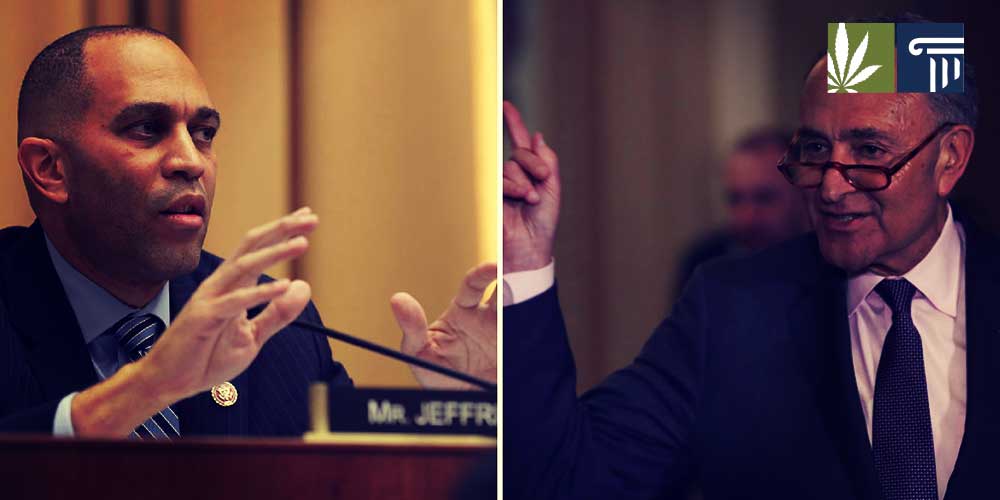Senate Democratic Leader Chuck Schumer (D-NY) and House Democratic Chairman Hakeem Jeffries (NY-08) announced plans to reintroduce legislation that would decriminalize marijuana at the federal level.
The Marijuana Freedom and Opportunity Act, first introduced by Sen. Schumer last year, would remove cannabis from the list of scheduled substances under the Controlled Substances Act.
As the top Senate Democrat who also has a track record of backing punitive drug laws, Schumer’s support of the bills makes clear how marijuana reform has now become a mainstream position.
“It’s about time we decriminalize marijuana,” Schumer said in an announcement video featuring him and Jeffries discussing the legislation. “We’ve seen with medical use, the states are working. Some of the states have already legalized, and it’s working well there. So what we’re saying is very simple: let each state do what it wants. There’s not going to be the heavy hand of the federal government telling you you can’t.”
In addition to descheduling marijuana, the House and Senate bills would set aside funding to encourage minority and women-led participation in state-legal markets.
“Let’s not have some big, fancy corporation, some big tobacco company make all the money,” Schumer said.
The legislation would also assist people to have their marijuana-related convictions expunged.
“You’ve had lives and communities that have been ruined in large measure by the over-criminalization. And so creating opportunity and economic space would be tremendous,” Jeffries said.
Federal law enforcement would maintain the authority to prevent and prosecute trafficking into states that have not legalized cannabis. The bills would also allocate money for further cannabis research, in particular its effects on driving and highway safety.
Removing marijuana from the Controlled Substances Act would signify a seismic shift in the federal government’s approach to drugs. Jeffries and Schumer’s efforts come at the same time as lawmakers work on advancing other marijuana reform proposals through committees, following a “blueprint” laid out by Rep. Earl Blumenauer (D-OR) to end federal prohibition.
“Legislative relief must come sooner rather than later. Over 650,000 Americans, disproportionately black, brown, young, and poor, are arrested for violating marijuana laws annually. Those without the means to defend themselves from the state bear the greatest burden and lifelong consequences of this ongoing failed federal policy,” said Justin Strekal, political director for NORML.
“The importance of this bill’s emphasis on facilitating the expunging of individual criminal records for marijuana possession cannot be overstated. Millions of Americans have suffered from the lifelong collateral consequences of criminal prohibition, making it harder for them to find a job, obtain housing, and access higher education,” he added.
“We’re concerned about freedom. We’re concerned about justice,” Schumer said. “We’re also concerned about safety. And the bill takes good measures in that regard, too.”






